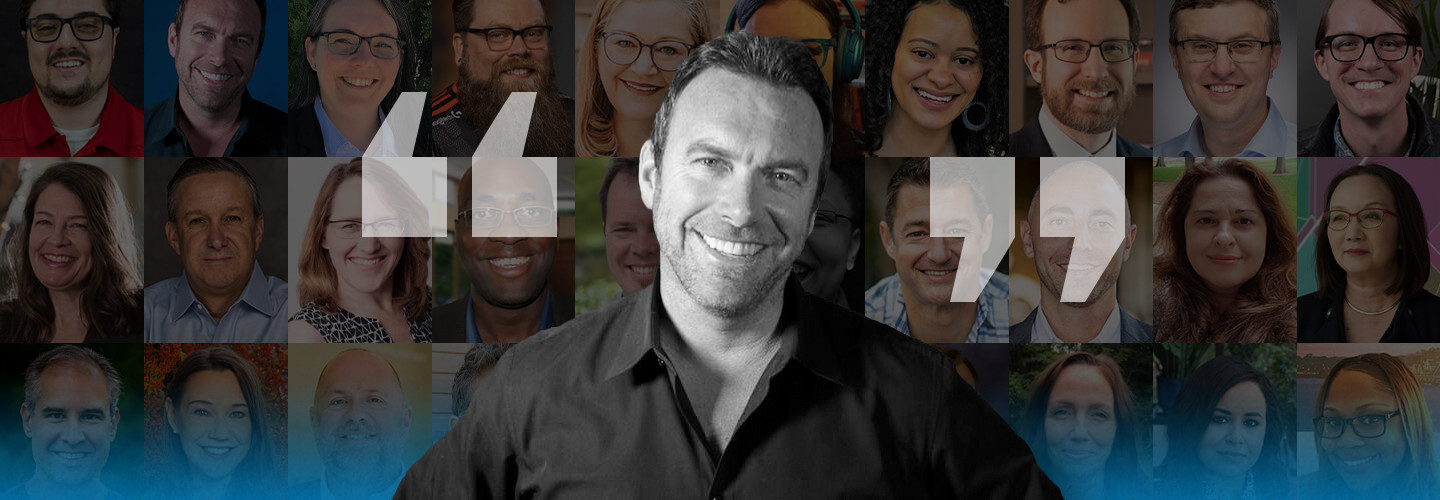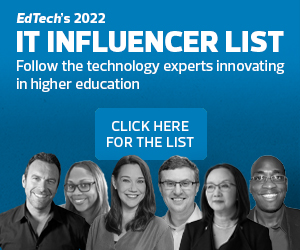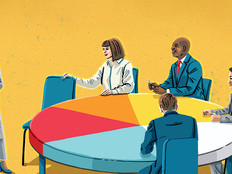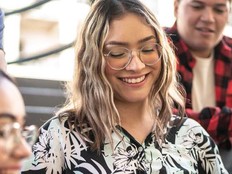EDTECH: After going on a series of in-person college tours with your niece, you both began looking for virtual tours of campuses. What did you find when you went looking for that content?
Boylan: I started helping navigate this world online, and each college, each university does an amazing job at marketing and telling their stories, but from an outsider’s perspective, it’s extremely challenging. How do you find the vibe? The culture? All those intangibles of a university, and each one of them tries to do it in a different way. Some have glossy commercials, some have user-generated content, some have just a lot of copy to read. It’s a lot to get through.
Fortunately, my producing partners and I, we’re television producers, and that’s when the lightbulb went off. I thought, “Higher education needs its own TV series.” The reason is that this next generation, or even someone older who is maybe upskilling or advancing their education, it’s hard for them to see outside their own world.
When you can see where you want to go, it’s a lot easier to start creating that path to get there. The College Tour is helping that.
LEARN MORE: Virtual tours expand opportunities for future higher ed students.
EDTECH: You’ve made college students the primary voices on this show. Why did you decide to tell these stories through students’ eyes?
Boylan: You need this to be relatable. I think The College Tour is the first time where we’re getting peers to talk to peers. Students at 19 or 20, they can relate to someone who’s 16 or 17 in a way that someone older will never be able to do in a million years. The most important reason we have it like that is to keep the authenticity of the story. Each one of these tells a story.
Think about it: When you’re in high school, who do you look up to? College kids. Getting those two demographics to speak to one another is really important to the show.
EDTECH: One of the challenges today is convincing students to physically come to campus with so many remote options available. What are you hearing about why the college experience is still worth it?
Boylan: That one word right there: the college “experience.” I think we bring that to life in a way that’s never been done before, and I think it’s so important. It’s funny, my niece was one of the top students in her class. She’s one of those students who thrives in education, who is going to go on to college, and one of her first questions just sitting around chatting one night was, “Is it worth it?” So, that conversation is out there in the marketplace.
The answer, and I think you get this feeling when you watch The College Tour, is that this is not an investment in four years of your life. This is a 40-year investment in your life. These are going to be your best friends, this is what’s going to open you up to opportunities and experiences. There’s no way you’re going to get that sitting behind a computer in your parents’ house. It’s just night and day. I think that’s what The College Tour is telling people. It’s showing you those intangible experiences and that growth that a college student is going to have while being on the brick-and-mortar campus while going to school, and I think it’s more important now than ever.
Click the banner below for exclusive content about audiovisual technologies in higher ed.












